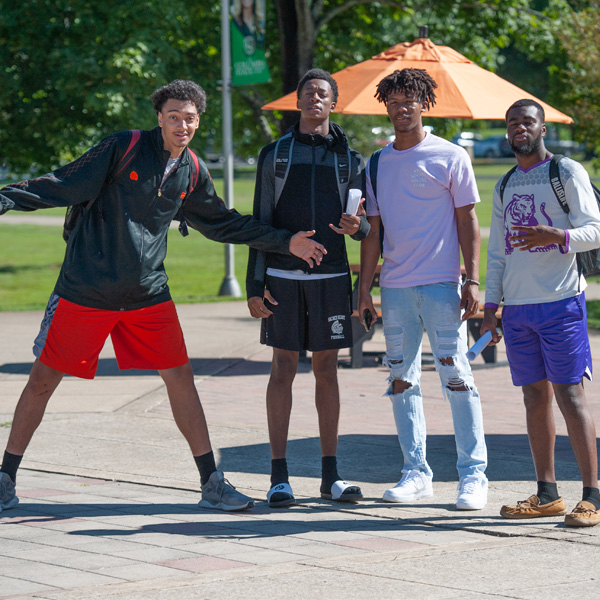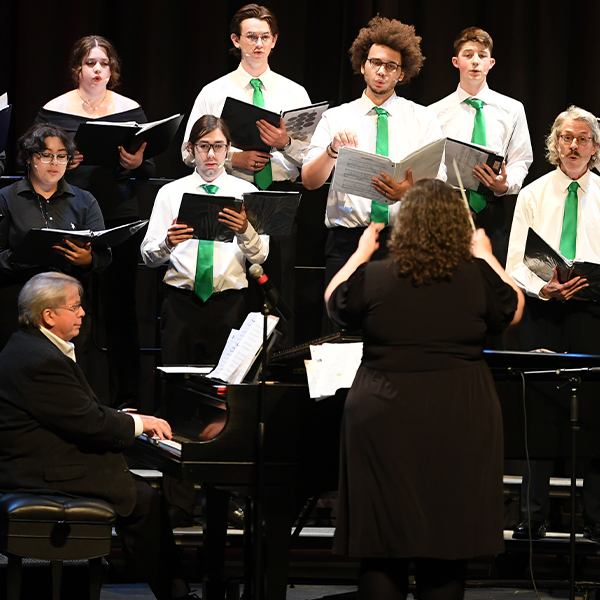As a student at Columbia State, you possess basic freedoms, privileges and rights guaranteed to all persons by the law. You are also subject to the same rules of accountability and the same limitations imposed by law on all persons.
There are a number of established policies and regulations and student-right-to-know information, developed by the College, as well as the Tennessee Board of Regents, that exist for the welfare of both students and the College. This information is detailed in the Columbia State Community College Catalog and Student Handbook available online.
Although the College provides this information to the student, it is the student’s responsibility to become familiar with the policies and regulations outlined in College publications. Students needing clarification on any of these policies or regulations should contact the Vice President for Student Affairs at 931.540 2762.
In the Classroom
The professor in the classroom and in conference should encourage free discussion, inquiry, and expression. Student performance should be evaluated solely on an academic basis, not on opinions or conduct in matters unrelated to academic standards. You are afforded the following protections:
- Protection of Freedom of Expression
- Protection Against Improper Academic Evaluation
- Protection Against Improper Disclosure
The instructor has the primary responsibility for maintenance of academic integrity and controlling classroom behavior, and can order the temporary removal or exclusion from the classroom of any student engaged in disruptive conduct or conduct that violates the general rules and regulations of the institution for each class session during which the conduct occurs. Extended or permanent exclusion from the classroom, beyond the session in which the conduct occurred, or further disciplinary action can be effected only through appropriate procedures of Columbia State. In doing so, the faculty member and Vice President for Student Enrollment, Engagement and Services must inform the student of his or her right to due process and of the procedures to follow in order to appeal the removal.
Anti-Harassment
Columbia State Community College will not condone sexual, racial, or other forms of harassment of students, employees of the College, or applicants for employment. Sexual harassment and racial harassment have been held to constitute a form of discrimination prohibited by Title VI, Title VII of the Civil Rights Act of 1964, as amended, and Title IX of the Educational Amendments of 1972 . Other types of harassment are prohibited by applicable law.
Student on Student Harassment
Student on student harassment means unwelcome conduct directed toward a person that is discriminatory on a basis prohibited by federal, state, or local law and that is so severe, pervasive, and objectively offensive that it effectively bars the victim’s access to an educational opportunity or benefit.
Prohibition of Sexual Misconduct
Sexual misconduct is a form of sexual discrimination prohibited by Title IX. Columbia State is committed to eliminating any and all acts of sexual misconduct and discrimination on its campuses. As set forth in this policy, sexual misconduct includes dating violence, domestic violence, stalking, and sexual assault. Columbia State strictly prohibits these offenses. Any allegation of sexual misconduct as defined herein will be investigated and adjudicated according to Columbia State and TBR policy.
Student Conduct Process
Columbia State insures the constitutional rights of students by providing a system of procedures which afford the protection of due process of law. Columbia State has enacted policies that are compliance with TBR Policy 3:02:01:00, as well as applicable state and federal law. All disciplinary procedures are affirmatively communicated to the faculty, staff, and students of the institution as well as published in appropriate websites, handbooks, or manuals.
- Notification Letter/Email: The student will be notified that there is an allegation of misconduct against them, policies violated, and a meeting time within five class days of the report.
- Investigation: Investigation of misconduct can start once an allegation is received and the investigation must be completed within 15 class days.
- First Meeting: During this meeting, the student must be informed of their charges and their rights. If investigation has concluded, adjudication or case dismissal can happen during the first meeting.
- Adjudication or Case Dismissal Letter/Email: Once investigation has concluded, the student must be notified if the charges stand and the options for adjudication within five class days.
- Options for adjudication:
- Informal disposition by Vice President for Student Affairs (VPSA) or designee
- No contest of the case from the student
- Referral to Discipline and Procedures Committee for hearing
- Student will need to state in writing what option they choose and that he/she understand selecting one option waives their rights to others.
- Second Meeting: If adjudication did not happen during initial meeting by VPSA or student elected to have a committee hearing.
- Outcome and Appeal Information Letter/Email: Student will be notified in writing the outcome of their case and any sanctions within five class days after the hearing date. A student can appeal a discipline committee decision to the President. Informal adjudication by the VPSA or designee is final.
Drug and Alcohol Prevention Policy
05-27-00 Drug-free Workplace and Campus
Division of Student Affairs
Jones Student Center Office 147
StudentAffairs@ColumbiaState.edu
931-540-2570







